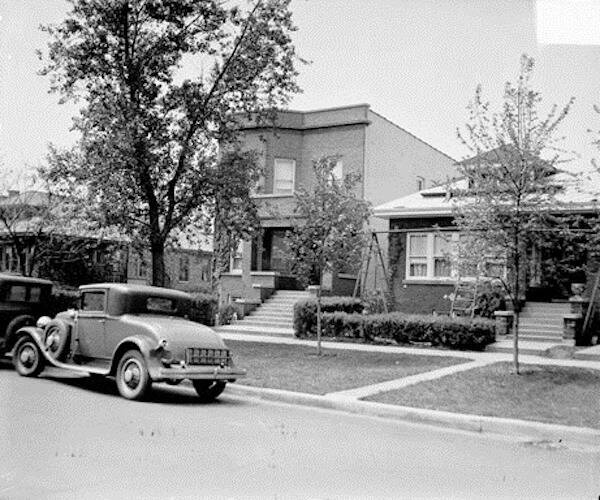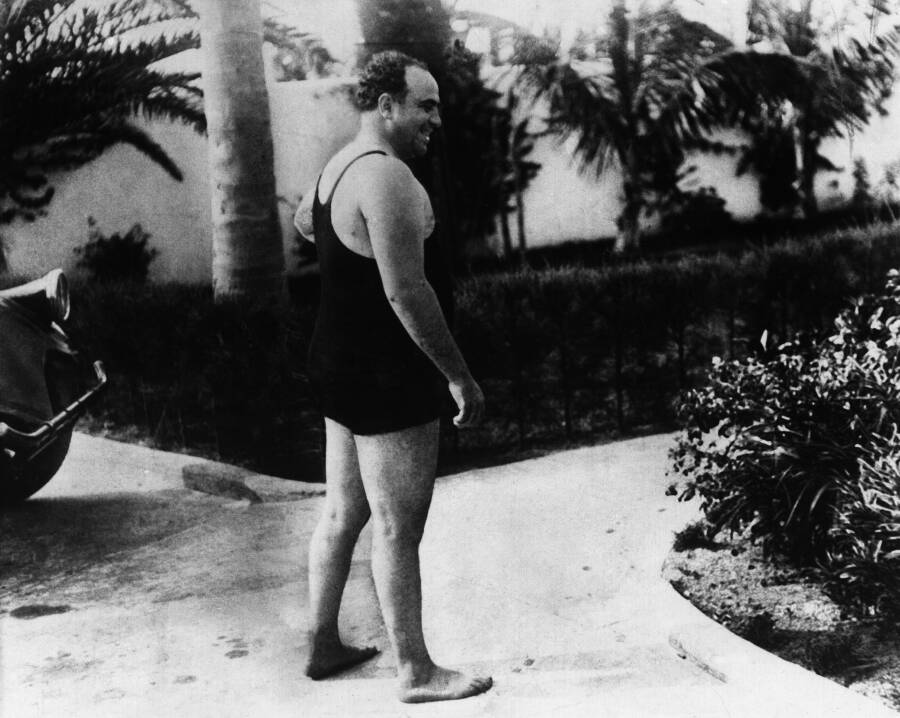Mae Capone: The Untold Story Of Al Capone's Sister Who Shaped History
When you think of the Capone family, the first name that comes to mind is Al Capone, the infamous mob boss who ruled Chicago during the Prohibition era. But did you know there’s another Capone whose story deserves just as much attention? Enter Mae Capone, a figure whose influence and legacy have often been overshadowed by her brother’s notoriety. Her role in the Capone family’s rise and fall is more fascinating than you might imagine. Let’s dive into the life of Mae Capone and uncover the truth behind this remarkable woman.
While Al Capone’s name is etched in history as a symbol of organized crime, Mae Capone’s story offers a different perspective on the Capone family. Her journey wasn’t just about being the sister of a mobster; it was about resilience, strength, and making choices that shaped her own destiny. This article will explore her life, her relationship with Al, and the impact she had on the world around her.
From her early days growing up in Brooklyn to her role as the matriarch of the Capone family after Al’s imprisonment, Mae Capone’s story is one of survival and adaptation. She wasn’t just a bystander in the world of gangsters and bootleggers; she was an active participant who made significant contributions to her family’s legacy. So, let’s get started and learn more about the woman who was so much more than just Al Capone’s sister.
Read also:Rae Lil Black The Alien Hunter Whorsquos Shaking Up The Ufo Community
Who Was Mae Capone?
Mae Capone wasn’t just another family member; she was a key player in the Capone dynasty. Born as Mafalda Capone on December 10, 1892, in Brooklyn, New York, she was the second of nine children in the Capone family. Unlike her brother Al, Mae didn’t gain fame through crime but through her quiet strength and determination. Her life was a testament to the fact that not all Capones were involved in illegal activities.
Mae’s early life was shaped by the struggles of her immigrant parents, Gabriele and Teresa Capone, who moved to America in search of a better life. Growing up in a bustling neighborhood, Mae learned the importance of family loyalty and hard work from a young age. These values stayed with her throughout her life and influenced her decisions, even during the turbulent years of Prohibition.
A Glimpse into Mae Capone's Biography
Early Life and Family Background
Before we dive into Mae’s adult life, let’s take a look at her childhood. The Capone family wasn’t rich, but they were close-knit. Mae grew up in a household where everyone pitched in to make ends meet. Her father worked as a barber, and her mother took care of the home and children. This environment taught Mae the value of teamwork and perseverance.
Interestingly, Mae wasn’t just Al’s sister; she was also the sister of Ralph Capone, another prominent figure in the Chicago underworld. Despite the criminal activities of her brothers, Mae chose a different path. She became a homemaker and devoted her life to her family, proving that not all Capones followed the same road.
Personal Information and Family Life
Here’s a quick breakdown of Mae Capone’s personal life:
| Full Name | Mafalda Capone |
|---|---|
| Birthdate | December 10, 1892 |
| Birthplace | Brooklyn, New York |
| Parents | Gabriele and Teresa Capone |
| Siblings | Al Capone, Ralph Capone, and others |
| Marital Status | Married to John J. Capone (no relation to the Capone family) |
Mae’s marriage to John J. Capone was a turning point in her life. Unlike her brothers, she didn’t get involved in the criminal underworld. Instead, she focused on building a stable home for her family, which included her son, Albert Capone. Her decision to lead a quiet life was a stark contrast to the chaotic world her brothers inhabited.
Read also:Alice Rosenblum Age The Real Story Behind The Rising Star
The Relationship Between Mae and Al Capone
Al Capone’s rise to power was nothing short of legendary, but Mae played a crucial role in his life. She was one of the few people he truly trusted, and their bond was unbreakable. Even during the darkest days of Al’s career, Mae stood by him, offering support and guidance.
One of the most interesting aspects of their relationship was how Mae helped Al during his legal troubles. When Al was sent to prison for tax evasion, Mae took on the role of matriarch, managing the family’s affairs and ensuring that his wife, Mae Coughlin Capone, and their son, Albert Francis Capone, were taken care of.
Mae’s Influence on Al’s Decisions
Mae’s influence on Al’s life extended beyond family matters. She often advised him on business decisions and encouraged him to think about the long-term consequences of his actions. Her wisdom and level-headedness were invaluable to Al, especially during times when he was under immense pressure.
- Mae acted as a mediator during family disputes.
- She helped manage the family’s finances when Al was incarcerated.
- Her advice often kept Al from making rash decisions.
Mae Capone’s Role in the Capone Dynasty
Mae wasn’t just a sister; she was a pillar of strength for the entire Capone family. After Al’s imprisonment, she became the glue that held the family together. Her role as the matriarch was crucial in maintaining the family’s reputation and ensuring that they survived the fallout from Al’s criminal activities.
During this time, Mae worked tirelessly to protect her family from the media and law enforcement. She was a master strategist, always thinking two steps ahead. Her ability to navigate the complex world of organized crime without getting her hands dirty was nothing short of impressive.
Managing the Family After Al’s Arrest
When Al was sent to Alcatraz, the Capone family faced numerous challenges. The media was relentless, and the government was determined to dismantle the empire Al had built. Mae stepped up and took charge, using her intelligence and resourcefulness to keep the family afloat.
She worked closely with Al’s wife, Mae Coughlin Capone, to ensure that their son, Albert, received the best possible care and education. Her dedication to her family was unwavering, and she never let the pressures of the outside world affect her priorities.
The Legacy of Mae Capone
Mae Capone’s legacy is one of resilience and integrity. She proved that even in a family notorious for its involvement in organized crime, there could be individuals who chose a different path. Her life serves as a reminder that family loyalty doesn’t always mean following the same road as your relatives.
Today, Mae’s story is often overlooked in favor of her brother’s more sensational exploits. However, her contributions to the Capone family’s survival and her role as a matriarch deserve recognition. She was a woman who defied stereotypes and carved out her own place in history.
Lessons We Can Learn from Mae Capone
Mae’s life offers valuable lessons for anyone facing adversity:
- Family loyalty doesn’t mean sacrificing your values.
- Strength doesn’t always mean being loud; sometimes it’s about quiet determination.
- Integrity and hard work can help you overcome even the toughest challenges.
Historical Context and Impact
To truly understand Mae Capone’s impact, it’s important to look at the historical context of her life. The Prohibition era was a time of great upheaval in America, and the Capone family was at the center of it all. Mae’s ability to navigate this turbulent period while maintaining her integrity is a testament to her strength and character.
Her story also highlights the often-overlooked roles of women in the world of organized crime. While men like Al Capone were making headlines, women like Mae were working behind the scenes to keep their families together. Her contributions may not have been as visible, but they were just as important.
How Mae’s Story Fits into the Larger Narrative
Mae Capone’s life is a fascinating chapter in the larger story of the Capone family. It shows that history isn’t just about the big names and dramatic events; it’s also about the people who support and sustain those names. Mae’s story reminds us that even in the shadow of fame and notoriety, there are individuals who lead quiet, meaningful lives.
Challenges and Triumphs
Mae Capone faced numerous challenges throughout her life, from dealing with the fallout of her brother’s criminal activities to managing the family’s affairs during difficult times. Yet, she never let these challenges define her. Instead, she used them as opportunities to grow and strengthen her resolve.
Her triumphs were not measured in wealth or power but in the love and respect she earned from her family and community. Mae’s ability to remain grounded and focused on what truly mattered set her apart from the flashy world of organized crime.
Overcoming Adversity
One of Mae’s greatest triumphs was her ability to overcome adversity without losing sight of her values. Whether it was dealing with the media or managing the family’s finances, she always approached challenges with a calm and rational mindset. Her example shows that strength isn’t about being fearless; it’s about facing your fears with courage and determination.
Conclusion
In conclusion, Mae Capone’s story is a powerful reminder that history is more than just the actions of famous individuals. It’s about the people who support and sustain those individuals, often working quietly and effectively behind the scenes. Mae’s life was a testament to the power of family loyalty, resilience, and integrity.
I encourage you to share this article with others who might be interested in learning more about the Capone family and the role of women in organized crime. By doing so, you’ll help ensure that Mae Capone’s story continues to be told and appreciated. And who knows? Maybe her story will inspire you to look at your own life and the choices you make in a new light.
So, what do you think? Did you learn something new about Mae Capone? Let me know in the comments below, and don’t forget to check out other articles on this site for more fascinating stories from history!
Table of Contents
Article Recommendations


